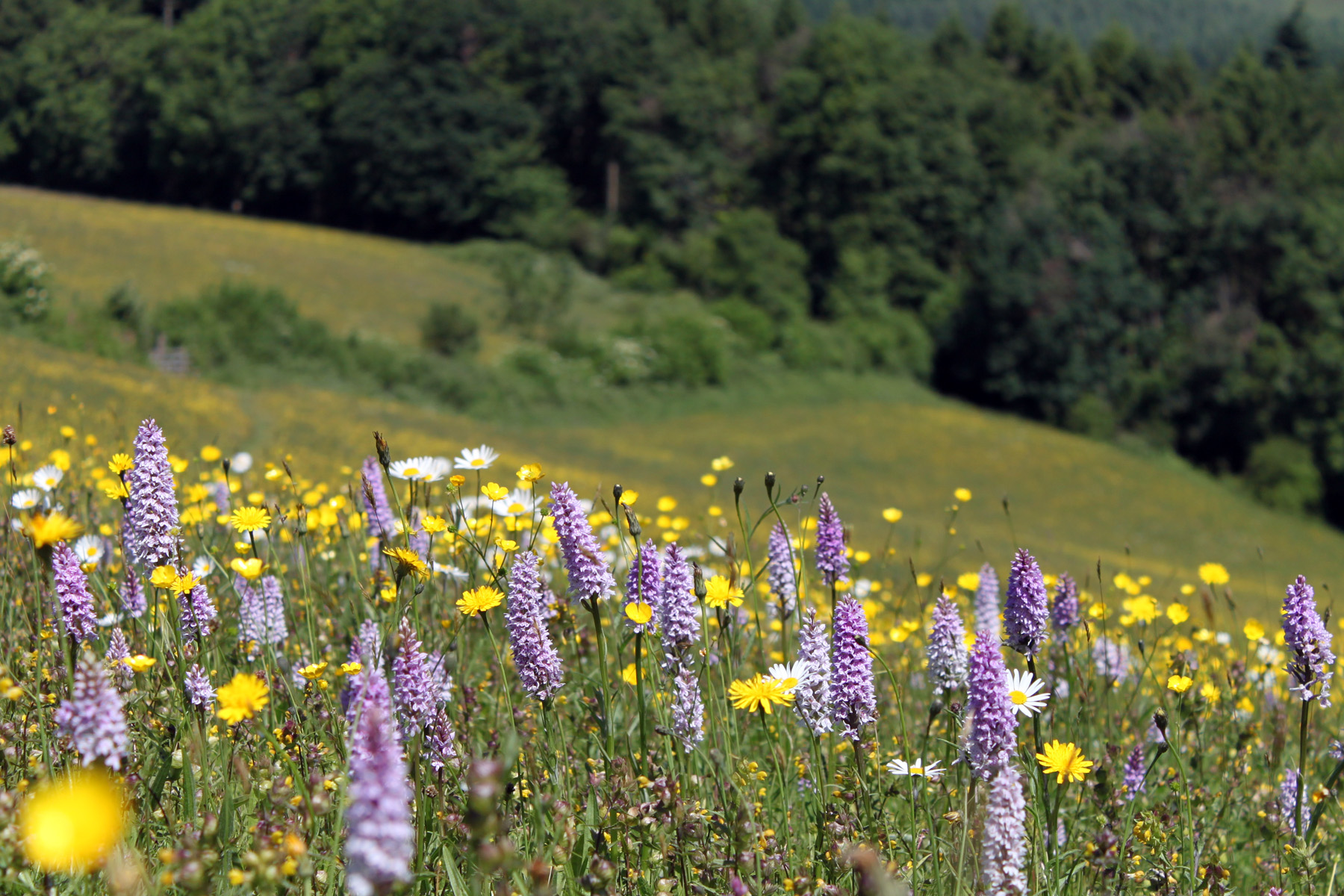 Pollinator Meadows 2020 restoration
Pollinator Meadows 2020 restoration
Work to restore and create 10.3 ha of flower rich meadows on the 6 sites which were part of the Pollinator Meadows 2020 Project – a partnership with Plantlife and funded by the Duke of Cornwall’s Benevolent Fund has now been completed! Thanks to all who have been involved – donors and meadow makers and for all the very hard work everyone has carried out to make this such a success in a quite difficult year.
A total  of 425.5 kgs of seed was harvested from 6 donor sites involving an area of 6 ha. The sites had been selected not only to match their recipient site eg. floodplain seed to future floodplain meadow but also to include as wide a range of seeds as possible. So this year seed like yellow rattle was harvested early – some when it had ripened in late June and other sites were harvested much later – end of August to include species like pepper saxifrage which sets seed much later. One of the arable reversion sites used an Emorsgate seed mix comprising typical Herefordshire meadow wildflowers and grasses.
of 425.5 kgs of seed was harvested from 6 donor sites involving an area of 6 ha. The sites had been selected not only to match their recipient site eg. floodplain seed to future floodplain meadow but also to include as wide a range of seeds as possible. So this year seed like yellow rattle was harvested early – some when it had ripened in late June and other sites were harvested much later – end of August to include species like pepper saxifrage which sets seed much later. One of the arable reversion sites used an Emorsgate seed mix comprising typical Herefordshire meadow wildflowers and grasses.

Techniques to prepare the ground on the 6 sites were varied. On the 2 arable reversions, seed beds were prepared while on the species poor meadows disc harrowing or scarifying with spring tines were used. Innovative methods were used to clear “thatch” pulled up by the tines. Our brush harvested seed is relatively bulky/chaffy as it is sifted only once in the field so this is not suitable for conventional seed drills. Most have broadcast this by hand while the Emorsgate seed was drilled but the equipment adjusted to ensure the seed was not buried.
The image to the right demonstrates the harrowing techniques used at The Hyde, Woolhope.
Management during the next few months is crucial in order to provide optimum conditions for germination and emerging seedlings. There are a number of options for management during this period including cut and collect, controlled grazing or regular topping.
Look out for details of Seedling Safaris where we’ll be looking for signs of germination and sharing and discussing first season management techniques.
 Again huge thanks to Plantlife for all their support, to the Duke of Cornwall’s Benevolent Fund and of course to you!
Again huge thanks to Plantlife for all their support, to the Duke of Cornwall’s Benevolent Fund and of course to you!
2019 and 2020 Botanical Monitoring – don’t forget to send in your plant id record sheets to Sue Holland. For PM 2020 this is the really important baseline data which you can used to monitor all the changes in the restored meadows. Please do send in any 2020 plant id surveys carried out on the 2019 Pilot sites – it would be great to look at changes over the first year.
Bumblebee monitoring – All bumblebee id data from 2019 and 2020 meadows would be welcome. These records will be entered onto the Bumblebee Conservation Trust BEEWALK database.
Thanks to all who have already sent in their records.
